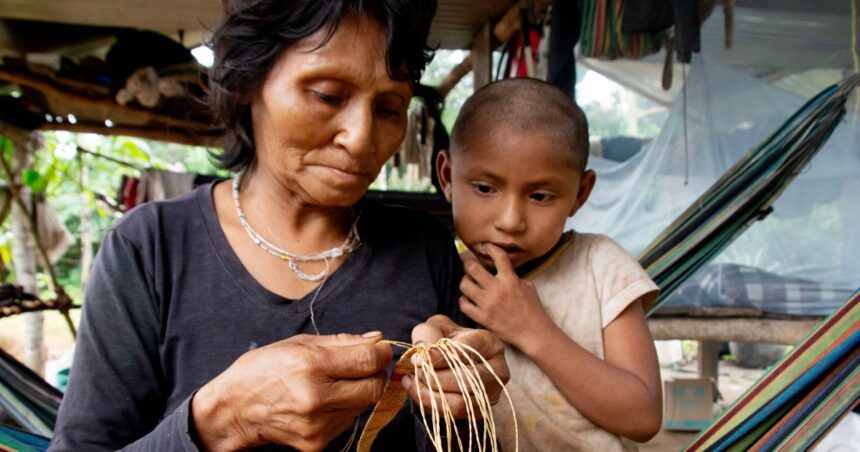About 70 percent of the Nukak population remains displaced from their ancestral lands, according to the Foundation for the Conservation and Sustainable Development of the Amazon (FCDS). Many families have transitioned to sedentary lifestyles, residing in makeshift camps on the outskirts of towns, where issues such as addiction and child sexual exploitation have become prevalent. Others have established homes on small plots in rural areas, leading to tensions with settlers over land disputes. Njibe, a community member, noted that settlers occupy land previously held by the Nukak, claiming it was uninhabited when, in fact, many Nukak had left due to illness. In the remote Amazon region, where the Nukak reservation is situated, the Colombian government’s presence is minimal, leaving the Indigenous people vulnerable to violence from settlers as they attempt to reclaim their territories. In recent years, some Nukak members have taken the initiative to return to their lands independently, particularly during the COVID-19 pandemic in 2020. Despite efforts to identify permanent relocation sites within the Nukak Maku reservation, challenges persist, as much of the land has been absorbed into ranches. Still, some Nukak families, supported by NGOs like the FCDS, aim to revitalize traditional lifestyles in the remaining forested areas.
Original Tweet: [source_url]
Hashtags: #territory #Colombias #nomadic #tribe #fights #return #home










